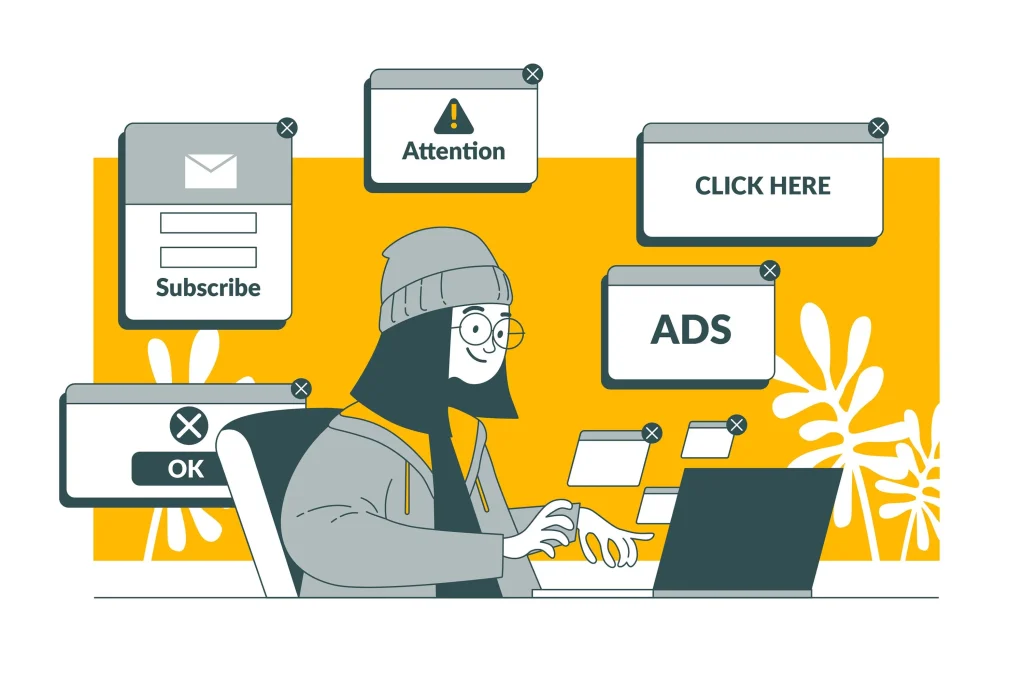In the world of modern web design, one page websites may seem appealing—minimalist, fast-loading, and easy to scroll. But if you’re a business owner aiming for long-term growth, lead generation, and online credibility, a one page site might be holding you back more than helping you.

Here are 10 solid reasons why your business website shouldn’t be a one page site:
1. Limited SEO Opportunities for one page websites
Search engines like Google rank individual pages for specific keywords. A one page site typically has just one URL and limited content, making it harder to rank for multiple keywords. A multi-page site allows you to optimize each page for different services, locations, or customer needs—boosting your visibility online.
2. Poor User Experience for Diverse Visitors
Not everyone who visits your website is looking for the same thing. Some people just want to know who you are, others are there to check prices, and some want to see proof that what you offer actually works — like reviews or case studies.
Now, imagine putting all of that info on one page website. It becomes messy, long, and tiring to scroll through. Most visitors will feel lost or just give up.
But if you break things up into separate pages — like ‘About Us’, ‘Pricing’, ‘Services’, ‘Testimonials’ — it becomes way easier for each person to find exactly what they’re looking for. It’s cleaner, more professional, and actually helps turn visitors into real customers.
3. Lack of Depth in Content for one page website
There’s only so much you can fit on one page website. If you try to cram everything — your services, FAQs, customer reviews, your work samples — it just doesn’t work well. You either end up with a super long page that no one wants to scroll through, or you keep things too short and vague, and people leave without really understanding what you offer.
A proper website with multiple pages gives you space to explain things clearly, build trust, and actually show what makes you different. That’s what helps turn visitors into real customers.
4. Not Ideal for Paid Ads or Landing Pages
Running Google Ads or Facebook campaigns? You’ll need dedicated landing pages tailored to each offer, service, or audience segment. A one page site doesn’t give you that flexibility and often leads to lower ad performance and conversion rates.

5. Difficult to Track Performance Metrics
With a multi-page website, you can actually see what people care about. For example, you can track if more visitors are checking out Service A or Service B, how long they stay, or where they drop off. That info helps you figure out what’s working and what needs fixing.
But with a one page website, you can’t really tell much. It’s like trying to read people’s minds with your eyes closed — you don’t know what they clicked on, what caught their attention, or where you lost them. So it’s way harder to improve your website or your sales strategy.
6. Harder to Establish Authority and Credibility
In competitive industries, people expect detailed information before they trust a business. Case studies, service breakdowns, about us sections, certifications, and blogs help establish credibility. On a one-pager, you don’t have room to demonstrate your expertise thoroughly.
7. Not Scalable as Your Business Grows
Planning to expand your services, enter new markets, or build a blog? A one page website quickly becomes a limitation. A multi-page site can grow with your business, allowing you to add new pages, resources, and content without redesigning everything.
8. Less Likely to Rank for Local SEO
If you serve multiple locations or neighborhoods, you need separate pages for each area with local keywords (e.g., “Hair Transplant in Istanbul” vs. “Hair Transplant in Antalya”). This is impossible with a one-pager. A multi-page site helps you target each location effectively.
9. Limited Conversion Funnels
Effective websites guide visitors through a journey—from awareness to action. This often means landing on a service page, reading a blog post, then clicking a CTA. A one-pager lacks this structure, reducing your ability to nurture leads and convert them effectively.
10. One page website, It Can Look Unprofessional
While some startups or portfolios can get away with a one page design, many businesses risk appearing unserious or temporary. A well-structured, multi-page site signals that you’ve invested in your business—and that you plan to stick around.
Final Thoughts
One page websites may be trendy, but they often sacrifice functionality, SEO, and credibility for the sake of simplicity. If you’re serious about growing your business online, a well-structured, multi-page WordPress site is the way to go. It’s not just about design—it’s about strategy, performance, and long-term success.




